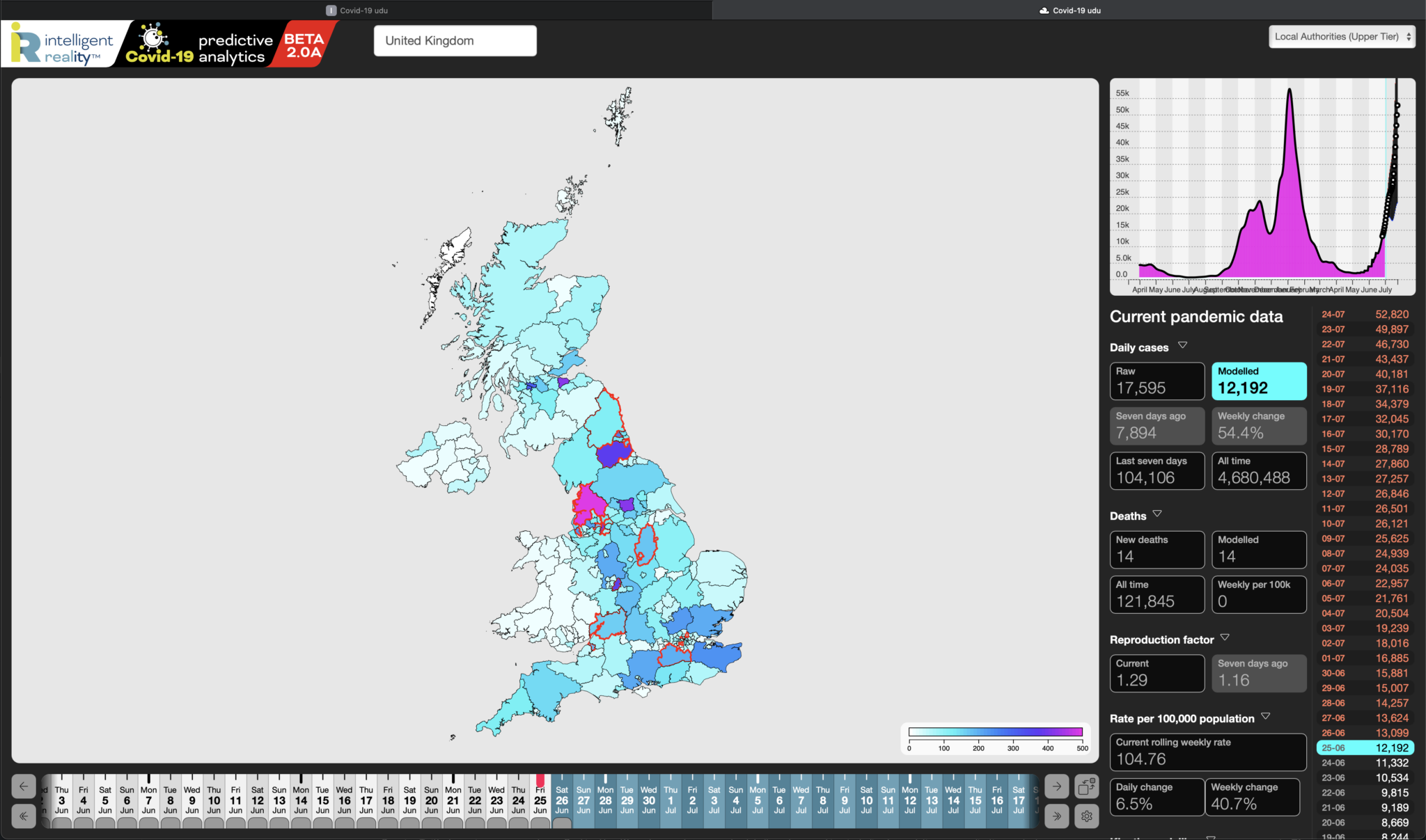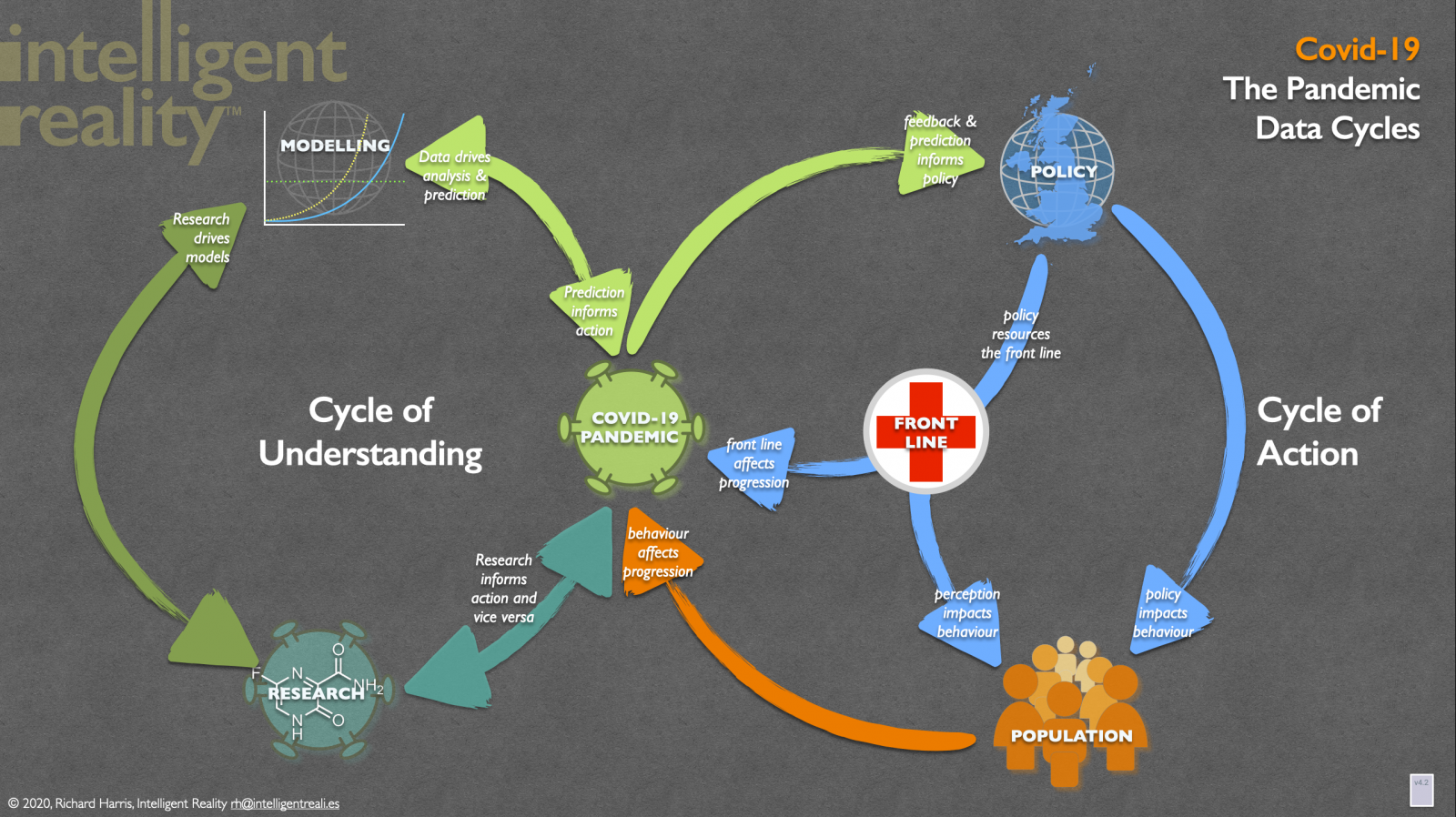The UK’s ‘Prime Minister’ stood up in Parliament today and stated that “Provided the current encouraging trends in the data continue“, Covid-19 restrictions in England would be lifted by the end of the month. At Intelligent Reality, we\’re not entirely sure to which data he refers – possibly those from his home dimension? In looking at […]
I owe our system an apology. After it started forecasting a downturn in Covid-19 cases for Scotland, I was dubious, suggesting that because it didn\’t \’know\’ about the combination of the final Euro2020 matches or the relaxing of restrictions at a time of rising case numbers, it was being overly optimistic. I was wrong. I
We\’ve already shown that our forecasting system has been effective in providing advance warning of the current Third (or Fourth, depending on how you\’re counting) wave of Covid-19 cases. With that wave now fully established, we\’re looking again at our forecasts, the core data and our dynamic analyses of the pandemic, especially given the latest
As of 11 May, our Covid-19 forecasting system started consistently predicting a coming rise in cases for the UK, driven largely (as it turns out) by the Delta variant of the Covid-19 virus. In the UK this has almost certainly been facilitated by both the general relaxation in lockdown and by events such as the
A remaining big unknown in the pandemic is not whether vaccines reduce serious symptoms, hospital admissions and deaths – they do – but whether and to what degree vaccines reduce the ability of those vaccinated to infect others, whilst not being symptomatic themselves. As we\’ve noted before, initial data on post-vaccination infectivity was somewhat contradictory,
Another Friday update: we\’re well into our private Beta of our predictive analytics and what-if? modelling system for Covid-19 analytics. So what is it telling us today? As of 3rd February our projections are (within their confidence limits, which of course become broader the further out we look, even if the central projection is tracking
Two Worlds is one of the successful applicants to a £40M fund created to support “Business-led innovation in response to global disruption”, a competition that attracted 8,600 applicants. Working with a team including epidemiologists, mathematical modelling specialists and the Department of Computer Science at Imperial College, Two Worlds is using udu’s intelligent analytic software to



